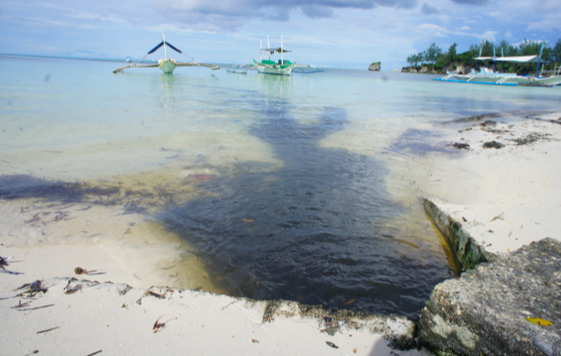
The sea off two popular tourist destinations in the Visayas is so polluted with human excrement it is no longer safe for swimming.
The waters off Mactan Island in Cebu province and Panglao Island on Bohol both contain levels of coliform bacteria that exceed standards set by the Environmental Management Bureau.
William Cuñado, regional director of the EMB, said the bureau’s recent study found that faecal coliform reached 150 to 200 most probable number (MPN) in Panglao and 180 to 250 MPN in Mactan.
The figures exceed the acceptable concentration of 100 MPN. Water with levels above this can cause illnesses if swallowed, or even by contact alone.
Last month, we reported on the same issue affecting Coron Bay in Palawan, where MPN levels were in some cases measured by the thousand.
In all cases, the excrement contamination is likely due to insufficient wastewater treatment and sewage disposal by hotels and resorts, Mr Cuñado said.
In Panglao alone, he added, more than 300 hotels and resorts had been issued notices of violation of the Clean Water Act (Republic Act No. 9275). In Mactan, 37 notices of violation have been issued.
The resorts now join Boracay as among the popular tourist destinations that have been found to have unsafe levels of pollution caused by human excrement.
The dumping of sewage into the sea off the renowned white-sand island resulted in the regular appearance of algal blooms. This, and other environmental issues, prompted President Duterte to dub Boracay a “cesspool”.
Following this assessment, it has been announced that the island will be closed for up to six months from April 26 for ‘environmental rehabilitation’.
The Department of Environment and Natural Resources is also cracking down on tourism businesses in El Nido, Palawan, and Puerto Galera, Oriental Mindoro, for violating sewage and sanitation laws.

Comments are closed.